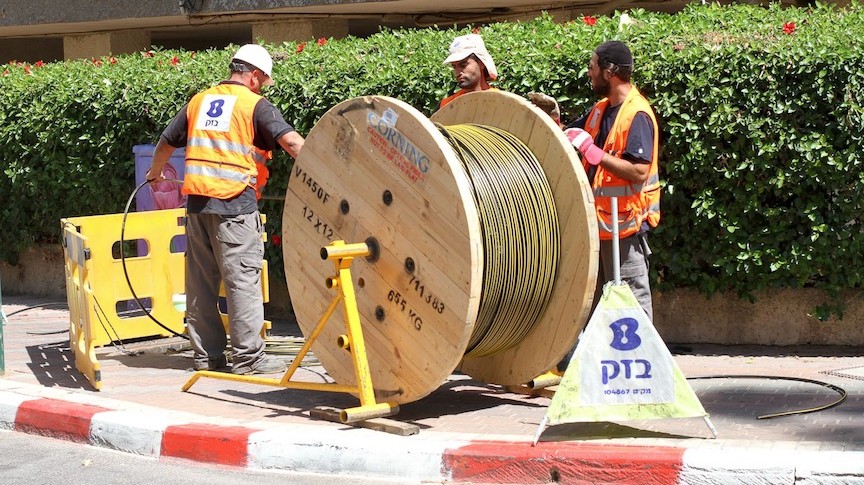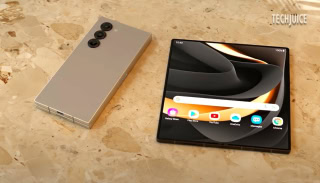Israel Finance Ministry has announced plans for the construction of a 254-kilometer (158-mile) fiber-optic cable, linking the Mediterranean and Red Sea. This ambitious project, spearheaded by the state-owned energy group EAPC, will create an uninterrupted communication link between Europe and countries in the Gulf and Asia.
By utilizing the existing infrastructure of an oil pipeline operated by EAPC, the cable will position Israel as a pivotal communication land bridge, facilitating connectivity and trade across regions. With a 25-year lease available to licensed telecom companies in Israel, this initiative holds significant potential for enhancing global connectivity and economic cooperation.
A Bridge Across Continents:
The construction of this fiber-optic cable along the route of EAPC’s oil pipeline from Ashkelon on the Mediterranean coast to Eilat on the northern Red Sea promises to establish Israel as a critical hub for communication. Itzik Levy, Chief Executive of EAPC, believes that this project will connect the Gulf countries and Asia to Europe, bolstering Israel’s strategic importance as a gateway for seamless data transmission. By capitalizing on subsea cables reaching Israel’s shores, this new cable will integrate into existing global communication networks, facilitating enhanced connectivity and data exchange across continents.
Revolutionizing Israel’s Telecommunication Landscape:
The 25-year lease offered to licensed telecom companies in Israel represents a significant opportunity for domestic and international players to tap into the expanded connectivity the fiber-optic cable provides. This initiative will foster competition and innovation in the telecommunication sector, encouraging the development of advanced services and technologies. By creating an open and accessible platform for telecom providers, Israel aims to position itself as a regional leader in telecommunications infrastructure, attracting investment and promoting economic growth.
Historical Significance and Environmental Concerns:
This venture builds upon Israel’s long-standing commitment to technological advancement and regional cooperation. The country has a rich history of pioneering initiatives in various sectors, including technology and innovation. The construction of the fiber-optic cable further solidifies Israel’s reputation as an innovation-driven nation that leverages its geographical location to bridge gaps and forge stronger regional ties.
However, it is important to address environmental concerns associated with EAPC’s operations. In 2014, a pipeline breach resulted in the release of 5 million liters of oil, causing significant damage to a desert nature reserve. Environmental groups have voiced their concerns about the safety record of the company and the potential hazards associated with its operations. As the project moves forward, it is essential to prioritize environmental protection, implement stringent safety measures, and adhere to international standards to mitigate any potential risks.
Promoting Regional Cooperation and Economic Growth:
The establishment of a seamless communication link between Europe, the Gulf, and Asia holds immense potential for fostering regional cooperation and economic growth. By connecting diverse regions, this initiative opens doors for enhanced trade, collaboration, and knowledge exchange. Israel’s position as a land bridge for communication will enable countries in the Gulf and Asia to expand their economic reach into Europe and vice versa. The increased connectivity will facilitate the transfer of ideas, innovation, and investment, fostering a dynamic ecosystem that drives economic prosperity and mutual understanding.
Government Support and Technological Advancement:
The Israeli government’s support for this project reflects its commitment to fostering technological advancements and positioning the country as a global innovation hub. By investing in critical infrastructure like fiber-optic cable, Israel demonstrates its dedication to staying at the forefront of the digital age. This initiative aligns with the country’s broader vision of nurturing a thriving technology sector, attracting global talent, and fostering an ecosystem that encourages entrepreneurship and innovation.
Israel’s ambitious plan to construct a 254-kilometer fiber-optic cable between the Mediterranean and the Red Sea marks a significant milestone in global connectivity. By leveraging existing infrastructure and creating a communication land bridge, Israel aims to facilitate seamless data transmission between Europe, the Gulf, and Asia.
This project presents ample opportunities for economic growth, regional cooperation, and technological advancement. It is imperative for stakeholders to prioritize environmental protection, adhere to safety standards, and ensure the sustainable development of this critical infrastructure. With the successful implementation of this initiative, Israel can strengthen its position as a global leader in telecommunications and continue to drive innovation and prosperity in the digital era.
Read More:













